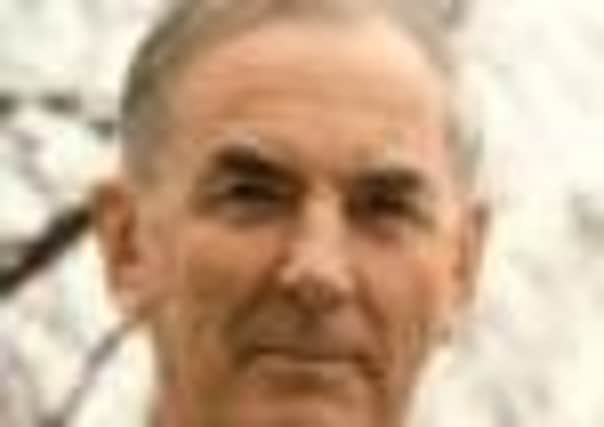Obituary: Jocelin Winthrop-Young OBE, the Gordonstoun ethic ran deep in life and work of educationalist and Hahn disciple


JOCELIN Slingsby Winthrop-Young sailed with HRH the Duke of Edinburgh at the outset of the
Gordonstoun Coast Guards Service; was a keen musician; a respected educationalist; a naval officer who saw action on D-Day, later serving in the Far East; a one-time news department officer in the Foreign Office; a disciple of Kurt Hahn and a chess player with an interest in travel, politics and democracy.
Advertisement
Hide AdAdvertisement
Hide AdThe son of Geoffrey Winthrop-Young, the highly-respected mountaineer and educationalist (and a foremost HM inspector of schools and one-time Alpine Club president), Jocelin was, above all, a man devoted to his friends and family with a lifelong interest in history and contemporary politics.
By birth, Geoffrey and Jocelin were linked into an extraordinary network of families and friends, including the Trevelyans, Arnolds, Arnold-Forsters and Huxleys.
While HRH the Duke of Edinburgh was a contemporary, his rather wider Gordonstoun contacts included members of the Byatt, Campbell, Packard and Crole families, as also Peter Carpenter, founder of the Kurt Hahn Trust and a close friend of my late parents, and Prince Max von Baden.
Geoffrey Winthrop-Young is credited with close involvement in the appointments of governors in the early years of Gordonstoun.
Educated at Salem and later private tutor to Crown Prince Constantine, Jocelin was, however, no elitist but rather an educationalist with a concern to ensure the offering of scholarships by schools, a life-long promoter to “all nature and condition of men” of the Gordonstoun ethic, the philosophy of Hahn and the Plus est en vous (the Gordonstoun motto).
At one stage, given just five minutes by the determined and persuasive Hahn to decide whether he wanted to go to Greece to open a “Hahnian” school there, Jocelin became private tutor to Constantine and then, in 1949, co-founder and head of Anavryta School near Athens, set up following the ideals and guidelines of Salem and Gordonstoun.
He founded and set up the Kurt Hahn Archives in Salem in 1965. In 1966, he founded that which was to be the most lasting of legacies, the Round Square, privileged to have HM the King Constantine as president and HRH the Duke of York as patron, and from which educationalists across the world have learned, continue to learn, and must equally continue to learn, much.
He was a man who believed in the importance of discussion as much as did Hahn in persuasion.
Advertisement
Hide AdAdvertisement
Hide AdRound Square is a worldwide association of schools which share a commitment beyond academic excellence to personal development and responsibility.
Jocelin had one key, profound and significant belief, over and above the aims and ideals of Hahn. While Hahn believed students of different nations co-operating in acts of service would help remove prejudice, Jocelin believed schools also needed to encourage the understanding of students’ basic differences in order to gain enrichment from their varied cultures and mentality.
Bishop’s College found the correct formula many years later in a conference it named “Celebrating differences”.
Jocelin retired in 1985 and continued to be sought after for interviews about education and Hahn. Also sought were his views on United World Colleges, the Duke of Edinburgh’s Award and Outward Bound, given his interest in the courses run by each.
And so one must revert to a legacy so cherished by many young and middle-aged pupils of both recent and more distant decades: giving children the chance to discover themselves; allowing children to experience both success and defeat; providing periods of silence; training the imagination, the ability to anticipate and plan; taking sports and games seriously, but only as a part of the whole; and freeing the children of rich and influential parents from the paralysing influence of privilege.
Hahn’s obituary in The Times stated: “No one else in our day has created more original ideas and at the same time possessed the gift of getting them into practice.”
Getting them into practice – and on a scale Hahn might never have imagined – was achieved by Jocelin with his Round Square, United World Colleges, Outward Bound and Duke of Edinburgh’s Award colleagues.
Such encouragement of pro-social behaviour chimes strongly with the work of the Royal Society of Arts and Goodison Group in Scotland with which I am involved in significant and peripheral measure respectively.
Advertisement
Hide AdAdvertisement
Hide AdJocelin’s distinctive encouragement of, and engagement with, young people is something many in our troubled world should emulate, and soon.
It is, surely, the urgent and lasting duty of each and every one of us to cherish and nurture future generations – be they among the less advantaged or the young emerging future leaders of all creeds and nationalities.
Should that famous Gordonstoun Plus est en vous? be extended to those of us not educated at Gordonstoun so that we may practice Plus est en nous?
Jocelin is survived by his three children: Mark, Sophie and Geoffrey. He and his first wife, Countess Ghislaine de la Gardie were divorced in 1974. She died in 1987.
His second wife, Countess Sibylle von der Schulenburg, died in 1998.
Ann Packard